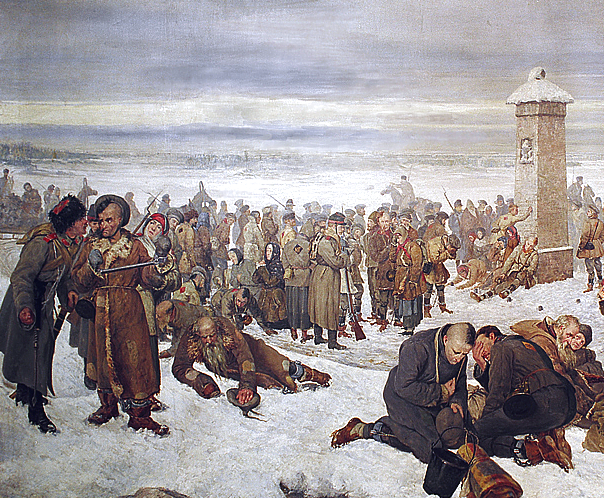Drawing on an extensive body published sources and on hundreds of files held in archives across Russia and Siberia, this book, published this summer, tells the story of what was known as “the vast prison without a roof”. From the beginning of the nineteenth century to the Revolution, the tsarist regime exiled more than one million prisoners and their families to Siberia. The book explores the fate of common criminals and political radicals, the victims of serfdom and village politics, the wives and children who followed husbands and fathers and of fugitives and bounty-hunters.
The tsars looked on Siberia as a vast political quarantine for the contagions of revolution. Generations of rebels – republicans, nationalists and socialists – were condemned to oblivion in regions thousands of miles from European Russia. Over the nineteenth century, however, these political exiles transformed Siberia’s mines, prisons and remote settlements into an enormous laboratory of revolution. Exile became a rite of passage for the men and women who would one day rule Russia. The House of the Dead tells the story of Russia’s struggle to govern its vast penal colony and of tsarism’s violent collision with the political forces of the modern world.
Daniel Beer is Senior Lecturer in Modern European History at Royal Holloway, University of London. He has published extensively on crime, terrorism and punishment in nineteenth century Russia. He is the author of Renovating Russia: The Human Sciences and the Fate of Liberal Modernity (Cornell UP: 2008). His new book, The House of the Dead: Siberian Exile Under the Tsars (Penguin, 2016) is the product of several years of research, including a year and a half in archives across Russia and Siberia.
Paul Lay is editor of History Today. He sits on the advisory boards of the Institute of Historical Research and the History and Policy unit at King’s College London. He is Senior Research Fellow in Early Modern British History at the University of Buckingham. He is author of History Today - And Tomorrow (2012). He was a founder of BBC History Magazine, former obituaries editor at the Guardian, desk editor at the Telegraph and editor of BBC classical music publications.
‘Farewell Europe!’ by Aleksander Sochaczewski, The Warsaw Museum.




